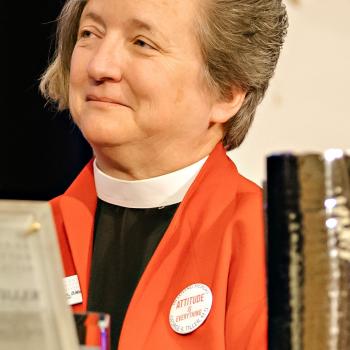Some folks who are hopping mad about the latest allegations against beloved priests have blamed me for not commenting on the bishops’ ‘zero tolerance’ position regarding accusations that are made against priests.
I’m sorry, but I have made myself a promise that this blog will not be used to negatively criticize any particular priest, bishop or the particular policies of our bishops. I’m just not going there. I prize my priestly obedience. I’m not speaking out against the bishops. Let the laity do that.
I do comment, however, on general trends or problems at times, and from time to time I realize I haven’t kept my promise to myself and maybe criticized the actions and attitudes of some bishops’ conferences. If I have, I’m sorry.
All I would say about the ‘zero tolerance’ policy is just driven by common sense, and the need for Christian charity and justice:
1. Every priest should be very careful to not only behave himself, but put every safety mechanism in place for his own protection. The instutional policies should encourage safe practice and extreme caution at all times. So, for example, if I have a private interview, I make sure that I am not alone in the building with that person. This applies to men and women, young and old. Also, wherever I meet the room always either has a glass door or the door remains open. I inform someone else in the building that I am meeting with the named person, and I have the appointment in an appointment book. As a result, I have a record of the time of my meeting and witnesses to the meeting. I try not to meet with anyone without these safety mechanisms in place. If I am in a social situation with other people it is never alone, except with a few trusted male friends.
2. As part of his protection, I think priests should have their own, third party, independent insurance policy and legal counsel. If an allegation comes up he should not trust the diocese to look after him. He should immediately seek his own legal counsel and contract a third party investigator who will make an objective report. This check and balance for the protection of the priest and his reputation should be put in place by the diocese or the parish.
3. The Dioceses should operate with professionalism and compassion for both the accused and the accusers. They should be aware that in our present climate an accusation in itself can ruin a man and his ministry. Without any attempt at a cover up, the Diocese should operate in privacy and with discretion. A public scandal can be avoided while still dealing firmly with wrong doing.
4. All people should be presumed to be innocent until proven guilty
This makes it sound like the priest is responsible for what happens to him. I guess that is my instinct because I don’t trust ‘city hall’ or for that matter ‘the chancery’. This is not because I think the bishops and their staff are all evil and corrupt, but because they have so many different people and concerns to consider in what are usually very complex and difficult situations. They should have a pastoral concern for the priest, and I think they usually do a good job, however, they also have to look after the good of all the faithful, the good of the whole diocese and the reputation of the whole church. Sometimes other pressures push them into decisions that they later regret in their actions against a priest who has been accused. This being the case, I think the individual priest should also be aware of the present climate and be as wise as a serpent and as harmless as a dove.
There are some innocent priests who have been accused, but more often the case is complex and there is more to it all than meets the eye. The present climate of accusations from ‘victims’ is extraordinary. So, for example, there is great confusion about the definition of ‘abuse’. It used to mean that a woman or child was repeatedly raped, beaten, sodomized, humiliated and destroyed by some monster. Now, at school we hear of a child who complains of ‘abuse’, and when you probe a bit further you find that her mother shouted at her for not cleaning up her room. You hear a woman complain of twenty five years of ‘abuse’ within a marriage. You think her husband came home drunk every Friday night, kicked her down the stairs, raped their daughter, beat up her sons and was a serial womanizer. You find out that she means ’emotional abuse’ because he watched football too much on TV, ignored her and once had an email correspondence with an old high school girlfriend.
Throw in a dash of sexual neurosis, a touch of paranoia, a pinch of persecution complex add the fury of a woman scorned, the imagination of a sick mind and the lure of a rich payout and the whole thing gets very very fuzzy indeed. So, for example, the accuser might say the priest ‘touched her inappropriately’. We think he put his hands on some erogenous zone. In fact, in passing, he patted her on the back or touched her forearm in a gesture. Some young man says the nun abused him at a Catholic school in the 1960s. It turns out he was a bad kid and she paddled him. But, paddling kids in schools was allowed back then. Everybody spanked kids. I’m not excusing anything–just pointing out how complex the whole situation is, how times change, standards change and it all gets very very messy and difficult to sort out.
It gets worse: the legal profession are involved, and they not only like lawsuits, they like complicated lawsuits that take a lot of time to sort out. Remember, they bill by the hour. Remember, they like big payouts because they are working for a percentage. As a result, the legal system itself cannot be trusted to deliver a just verdict. I’m not damning all lawyers, but there are plenty out there who are corrupt and care more for the big bill than justice for the accused.
Consequently, the priest, in my opinion, must be as professional and thorough as possible in protecting himself through proper boundaries, and his own checks and balances and security systems, but the investigating authorites must also be as professional as possible in assuming innocence rather than guilt and sorting through the complexities as fairly as possible to avoid injustice on the one hand and exercise compassion on the other.











